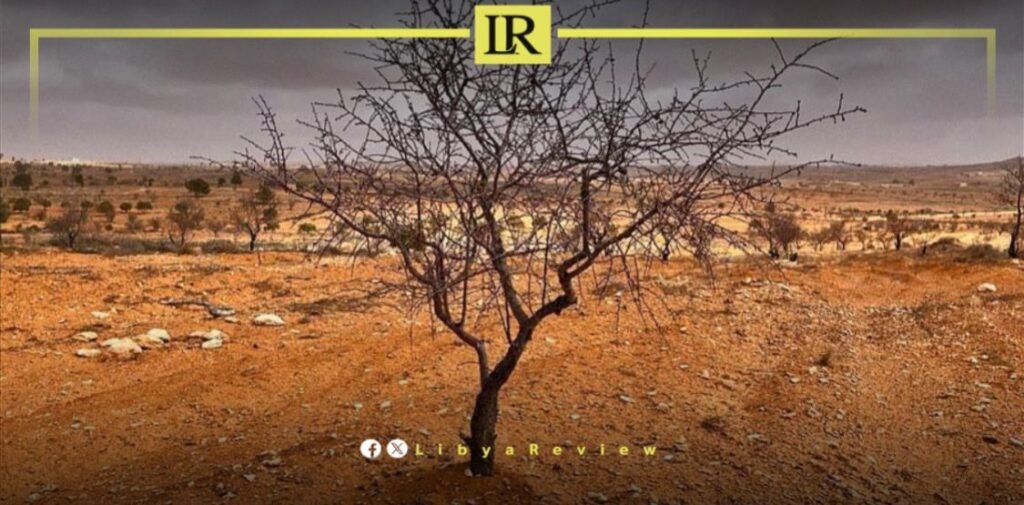Libya is facing one of the most severe drought periods in its modern history, with new data from the National Centre of Meteorology revealing a dramatic collapse in rainfall levels over the past 30 years and a clear shift in the country’s climate pattern.
According to studies issued by the Centre’s Research and Studies Office, Libya’s long-standing rainfall cycle has undergone a major transformation. The traditional pattern—four wet years, three normal years, and three dry years—has reversed. The country now experiences five consecutive dry years, only two wet years, and three years within average levels. This means nearly 50% of Libya’s climate cycle is now classified as drought, an unprecedented level in the nation’s recorded climate history.
Second Driest Country in the World
Mohiuddin Ramadan, Director of the Information Office at the National Centre of Meteorology, confirmed that Libya is ranked second globally in terms of drought severity. He attributed this to the persistent Azores High, which blocks Atlantic weather systems from reaching North Africa, as well as accelerating global climate change that continues to disrupt regional weather patterns and intensify aridity.
Data from the Centre shows that Libya’s vegetation cover saw a sharp decline between 2000 and 2014, shifting from “severe” to “very severe,” coinciding with a drought cycle that began in 1999. Current projections expect this cycle to continue until at least 2028–2032.
Libya receives around 80 billion cubic metres of rainfall annually, but one-third evaporates, another third becomes surface runoff, and only the remaining third filters into underground aquifers — placing additional pressure on the country’s fragile water resources.
Urgent Action Needed
The National Centre of Meteorology urged authorities to take immediate steps to curb the worsening effects of drought. Recommended measures include the launch of nationwide rainwater-harvesting projects, reactivation of the cloud-seeding programme suspended for more than 25 years, and expanding seawater desalination as a sustainable long-term solution to Libya’s water shortages.
Experts warn that without rapid intervention, Libya could face an escalating environmental emergency affecting agriculture, water security, and population centres across the country.


